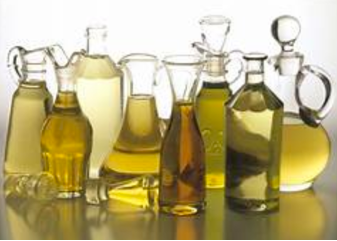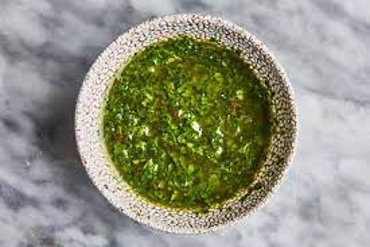 Unsaturated fats such as olive, vegetable, and canola oils are cooking staples in many households. These oils often sit on our shelves, ready to be used in our recipes and delicious dishes. They seem to last forever, right? To the contrary, if not stored properly, oils may go rancid.
Unsaturated fats such as olive, vegetable, and canola oils are cooking staples in many households. These oils often sit on our shelves, ready to be used in our recipes and delicious dishes. They seem to last forever, right? To the contrary, if not stored properly, oils may go rancid.
Rancidity is the deterioration of fats and oils that causes unpleasant odors and less than desirable flavors1. This can occur from exposure to certain microbes as a result of poor food handling and hygiene1. More often oil rancidity occurs when oil is exposed to oxygen resulting in the formation of free radicals1. These free radicals contribute to the change in taste and smell of cooking oils. Despite the decrease in quality, rancid oil does not generally make a person sick if consumed1.
Time- Regardless of external factors, oil will go rancid eventually. It is good to use it in a timely manner. Opened containers of oil are best if used within 2-3 months while unopened oil is good for up to 4 months3.
Keep your oil off the countertop and in a dark, dry location at room temperature. This will reduce the amount of light, heat, and air that increase the rate of rancidity described above1,2. It will also preserve the taste and smell. Additionally, purchase your oil packaged in dark or tinted containers. Make sure to not refrigerate your oils; moisture will also increase the rate of rancidity.
The oils we use most often fall into two categories of unsaturated fats. Monounsaturated fatty acids are found in olive, canola, and sunflower oils4. Polyunsaturated fatty acids are found in sunflower, soybean, and cottonseed oils4. Both decrease the risk of heart disease and stroke by reducing the levels of LDL, or “bad” cholesterol in the blood4,5. Omega-3 fatty acids specifically promote heart health by lowering blood pressure and risks of blood clots4.Olive oil is known to have one of the highest levels of monounsaturated fats5.
 Chimichurri Sauce
Chimichurri Sauce
Combine shallot, chile, garlic, vinegar, and 1 tsp. salt in a medium bowl. Let sit for 10 minutes. Stir in cilantro, parsley, and oregano. Using a fork, whisk in oil. Transfer ½ cup chimichurri to a small bowl; season with salt and reserve as sauce. Place meat in a glass, stainless-steel, or ceramic dish. Toss with remaining chimichurri. Cover and chill at least 3 hours or overnight.
While rancid oil may taste bad, it probably won’t make you sick. Rancid oil does contain free radicals that might increase your risk of developing diseases over time.

The oils we use most often fall into two categories of unsaturated fats. Monounsaturated fatty acids are found in olive, canola, and sunflower oils4. Polyunsaturated fatty acids are found in sunflower, soybean, and cottonseed oils4. Both decrease the risk of heart disease and stroke by reducing the levels of LDL, or “bad” cholesterol in the blood4,5. Omega-3 fatty acids specifically promote heart health by lowering blood pressure and risks of blood clots4.Olive oil is known to have one of the highest levels of monounsaturated fats5.
 Chimichurri Sauce
Chimichurri Sauce
 Unsaturated fats such as olive, vegetable, and canola oils are cooking staples in many households. These oils often sit on our shelves, ready to be used in our recipes and delicious dishes. They seem to last forever, right? To the contrary, if not stored properly, oils may go rancid.
Unsaturated fats such as olive, vegetable, and canola oils are cooking staples in many households. These oils often sit on our shelves, ready to be used in our recipes and delicious dishes. They seem to last forever, right? To the contrary, if not stored properly, oils may go rancid.
Time- Regardless of external factors, oil will go rancid eventually. It is good to use it in a timely manner. Opened containers of oil are best if used within 2-3 months while unopened oil is good for up to 4 months3.
Keep your oil off the countertop and in a dark, dry location at room temperature. This will reduce the amount of light, heat, and air that increase the rate of rancidity described above1,2. It will also preserve the taste and smell. Additionally, purchase your oil packaged in dark or tinted containers. Make sure to not refrigerate your oils; moisture will also increase the rate of rancidity.
 Alice Osborne Weekly Newsletter Contributor since 2006 Email the author! [email protected] Please enable JavaScript to view the
Alice Osborne Weekly Newsletter Contributor since 2006 Email the author! [email protected] Please enable JavaScript to view the
So up until now, the only recourse I thought I had was to throw the stuff out. And I’d get this sick feeling in my stomach over how wasteful this was. Can you relate? But just today I ran onto information on what to do with rancid oil. This means it doesn’t have to been tossed after all!
Using fresh oil is always the healthiest cooking habit. And there are specific things you can do to prolong your oil’s freshness, according to recent research from Columbia University:
Are Rancid Oils Irritating Your Gut?
FAQ
Will slightly rancid oil make you sick?
Can old oil make you ill?
Can you get food poisoning from old oil?
Is it okay to cook with rancid oil?
Does rancid oil make you sick?
Consuming rancid edible oil may leave an unpleasant taste, but it may not make you sick right away. While heart-healthy oils are an important part of your balanced diet, you should avoid consuming rancid oil and rancid nuts at all costs. For starters, they simply don’t taste good.
What are the potential risks or side effects of oil pulling?
Oil pulling is an old practice that several individuals believe benefits their oral health. Swishing coconut oil, sesame oil, or olive oil around the mouth is known as oil pulling. Some of the adverse effects of oil pulling include dry mouth, excessive thirst, muscular stiffness, sore jaw, headache, tiredness, loss of taste, and decreased sensation in the mouth.
What happens if you cook with rancid oil?
When you cook with rancid oil, the off flavors and odors can transfer to your food, making it taste unpleasant. Nobody wants to sit down to a meal that smells and tastes like old crayons or stale socks. It’s best to use fresh, high-quality oil to ensure that your dishes turn out delicious. ### Precautions to Avoid Using Rotten Oil in Cooking
Can rancid oil cause stomach ache?
Rancid oil may cause stomach ache, nausea, vomiting, diarrhea, fever, headache, and other unpleasant symptoms. Therefore, it is crucial to store oils in a cool, dry, and dark location and to dispose of expired or uncomfortable oils promptly to avoid any adverse health effects.
